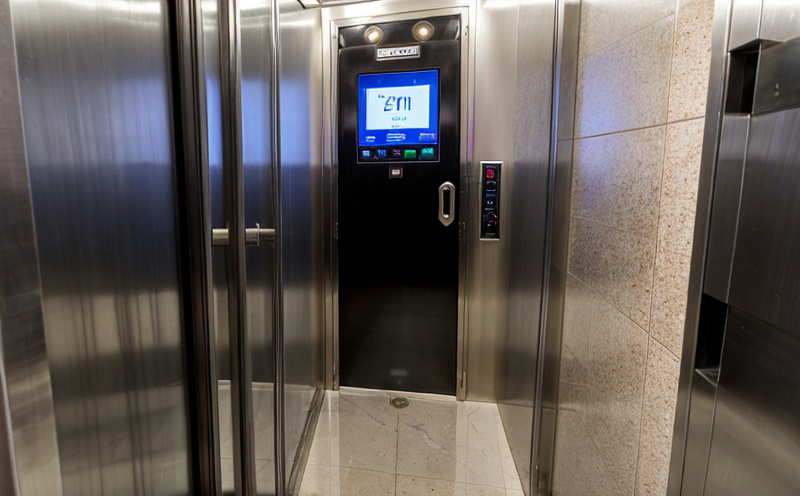Elevator intercom inspection
The elevator intercom system is a critical component of any building's safety infrastructure. It ensures that users can communicate effectively with maintenance personnel and emergency services in case of an emergency. This service focuses on the detailed inspection, testing, and certification of intercom systems to ensure they comply with relevant standards and meet operational requirements.
The intercom system is typically installed at elevator lobbies or car levels where it provides a two-way communication channel between users inside the elevator cab and those outside. The primary purpose of this service is to guarantee that the intercom functions reliably under all conditions, especially in emergencies. This includes checking the quality of audio transmission, ensuring clear visibility of the screen, and verifying that the system can handle multiple simultaneous calls without degradation.
During an inspection, we adhere strictly to a series of steps outlined by relevant standards. These include testing the intercom’s resistance to environmental factors such as humidity and temperature variations. Additionally, we ensure that the system remains functional even after extended periods of inactivity or during power outages. The test parameters are designed to simulate real-world conditions and stress scenarios that users might encounter.
Before starting any inspection, proper specimen preparation is essential. This involves cleaning the intercom screens to eliminate dust and grime which could affect visibility. We also check for any physical damage or wear and tear on the hardware components. Once prepared, we use specialized equipment such as audio testers and thermal cameras to conduct a thorough examination.
The testing process is comprehensive, involving multiple phases that cover all aspects of intercom functionality. The first phase involves auditory tests where we evaluate sound clarity and volume levels at different distances from the device. In the second phase, we assess visual quality by checking the resolution and contrast on the screen under various lighting conditions. Finally, in the third phase, we simulate emergency scenarios to ensure that the system responds correctly and efficiently.
The results of these tests are meticulously documented and compared against internationally recognized standards such as ISO 18742:2003. Compliance with these standards ensures that the intercom meets the highest safety and performance criteria. Our reports provide detailed insights into any issues identified during the inspection along with recommended corrective actions.
By adhering to rigorous testing protocols, we ensure that elevator intercom systems operate reliably under all conditions. This not only enhances user experience but also contributes significantly to overall building safety.
| Applied Standards | Description |
|---|---|
| ISO 18742:2003 | International standard for elevator and escalator control systems, including intercoms. |
| ASTM E1965-17 | American Society for Testing and Materials standard for the performance of elevators. |
Why It Matters
The integrity and reliability of elevator intercom systems are paramount in ensuring safe building operations. Effective communication between users and maintenance personnel can significantly reduce response times during emergencies, thereby minimizing risks and potential harm to individuals within the building.
Compliance with industry standards is crucial for several reasons. Firstly, it demonstrates a commitment to high-quality service that meets or exceeds regulatory requirements. Secondly, adhering to these standards helps in maintaining the trust of stakeholders such as property owners, tenants, and occupants. Lastly, compliance can lead to reduced liability risks by ensuring that all safety measures are robustly implemented.
Furthermore, regular inspections contribute to extending the lifespan of intercom systems. By identifying potential issues early on, necessary repairs or replacements can be planned accordingly, thus preventing unexpected failures during critical moments.
The importance of elevator intercom inspection cannot be overstated in today's fast-paced urban environments where buildings serve multiple purposes and house diverse populations. Ensuring that these communication tools are functioning optimally is not just a technical necessity but also a fundamental aspect of responsible building management.
Applied Standards
| Standard | Description |
|---|---|
| ISO 18742:2003 | This international standard provides guidelines for the design, installation, and maintenance of elevator control systems including intercoms. |
| ASTM E1965-17 | An American standard that specifies criteria for evaluating elevator performance based on various operational parameters. |
These standards ensure that the inspection process adheres to established benchmarks and best practices, thereby enhancing reliability and safety. Compliance with these standards also helps in maintaining a consistent quality level across different installations and facilities.
Environmental and Sustainability Contributions
Reduces the need for frequent maintenance by identifying issues early through comprehensive inspections.
Promotes energy efficiency by ensuring systems operate at optimal levels, reducing unnecessary power consumption.
The inspection process itself contributes positively to environmental sustainability by minimizing disruptions and optimizing resource use. Regular checks help in preventing unnecessary replacements and repairs that could otherwise lead to waste generation. Moreover, the insights gained from these inspections inform proactive maintenance strategies which contribute to long-term cost savings and reduced environmental impact.





